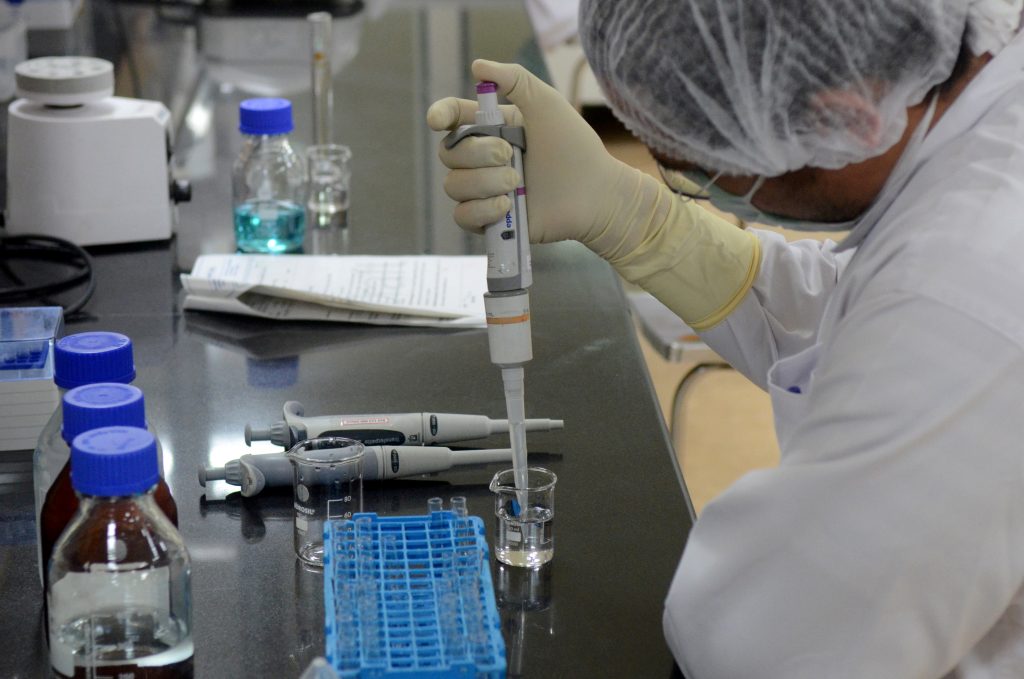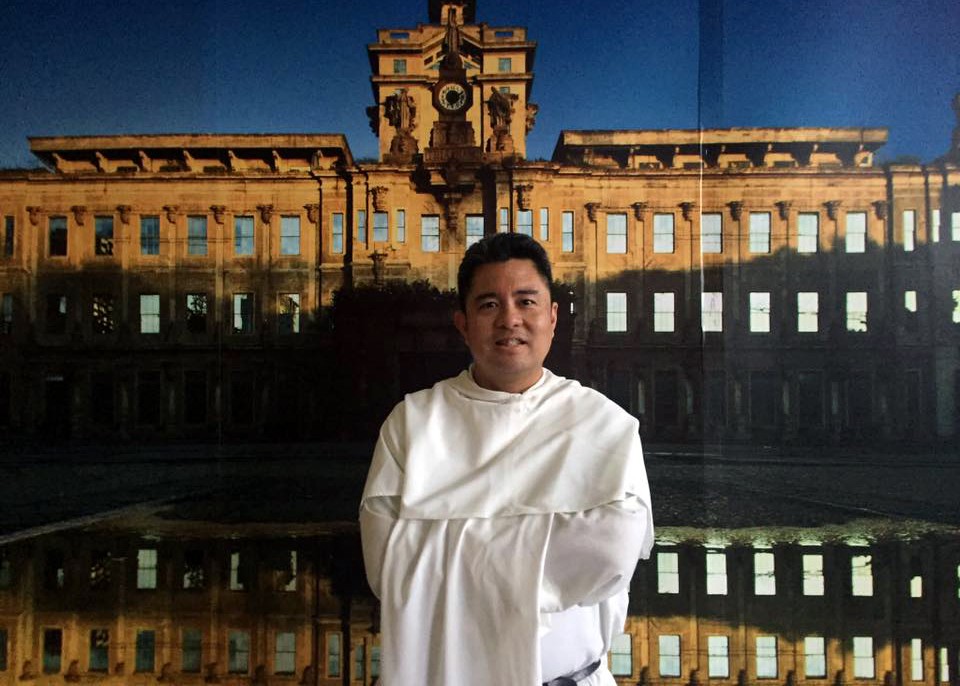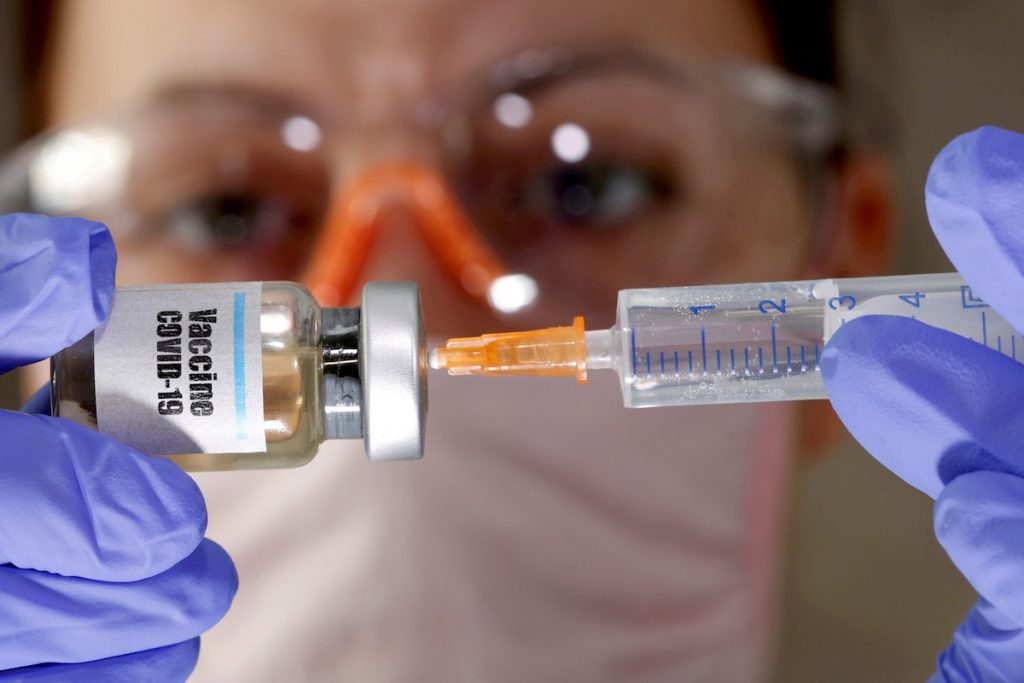
A Filipino Dominican priest is currently working on a possible COVID-19 vaccine that will be affordable and accessible to poor people, especially in less-developed countries like the Philippines.
“I thought about developing this vaccine when I realized that many of the available vaccines have already been promised to resource-rich countries,” said Father Nicanor Austriaco, a Dominican microbiologist.
He admitted that “it is a crazy idea” but said what he is working on “has to be tested in the small chance that it would work.”
“I decided to do this for the well-being of the Filipino people,” Father Austriaco told LiCAS.news in an interview.
He said his project, dubbed “Project Pagasa,” is in its “early stages of development” and is not as expensive as the ones being developed by large pharmaceutical companies.
“It is still in its preclinical stage of development and it will have to be tested in animal models before we can even talk about human volunteers,” said the priest.
He said that because his vaccine is “yeast-based” it will not need refrigeration and it will be taken orally.
Father Austriaco is confident that has enough funds to work on the initial development of the vaccine platform and to test it on animals.
“I have adequate funding to complete the necessary experiments to make the yeast vaccine delivery system and to do animal testing,” the priest said in the interview.
He said he would only seek government approval if the vaccine delivery system works in animals. “We will not know this for many months,” he said.
Father Austriaco and his colleagues will be doing the experiments in a laboratory in the United States and the animal testing in a laboratory at the University of Santo Tomas in Manila.
“We will do it as quickly as possible without sacrificing the rigor and excellence that science demands,” said the priest, who is visiting professor of biological sciences in Manila until August 2021.

Priest-scientist
Father Austriaco is associate professor of biology and theology at Providence College in the United States and chief researcher at Austriaco Laboratory.
He obtained his Bachelor’s Degree, summa cum laude, in Bioengineering at the University of Pennsylvania in 1989.
He later obtained his doctorate in biology from the Massachusetts Institute of Technology in 1996 where he was a fellow of the Howard Hughes Medical Institute.
In 1997, he entered the Order of Friars Preachers, popularly known as the Dominicans.
He attended the Pontifical Faculty of the Immaculate Conception at the Dominican House of Studies in Washington, DC, where he earned his Master of Divinity degree and Licentiate in theology.
He also earned his Doctorate in Sacred Theology from the University of Fribourg in Switzerland in 2005.
He worked as an investigator for the Rhode Island-IDeA Network of Biomedical Research Excellence Program funded by the National Institutes of Health, a scientific advisor at the National Catholic Bioethics Center, and an ethics consultant for St. Joseph Health Services of Rhode Island.”
His laboratory at Providence College investigates the genetics of programmed cell death using yeasts as model organisms.
Father Austriaco’s book, “Biomedicine and Beatitude: An Introduction to Catholic Bioethics,” was recognized as a 2012 Choice outstanding academic title by the Association of College and Research Libraries.

Surge in cases during holidays
The priest earlier warned of the possible surge in COVID-19 cases in the coming days with the onset of the holiday season.
“We’re approaching a time when there will be a lot of social mixing so you want to have a caseload that is as a low as possible before Christmas,” said the priest who also works with the OCTA Research Group of the University of the Philippines.
He said, however, that the new cases should not be a cause of concern, adding that the basic rule in pandemic management is that as you open the economy and increase mobility, there is bound to be an uptick in cases.
“The important thing is that the government has increased its capacity to fight COVID-19 and should be able to act quickly on the problem,” he said.
The Philippines, which recorded its first COVID-19 case in January, has already recorded a total of 445,540 COVID infections, with a total of 8,701 deaths this week.
The Philippine government is eyeing to inoculate from 50 to 60 percent of the country’s estimated 110 million population starting middle of next year to achieve “herd immunity” from COVID-19.
Carlito Galvez Jr, head of a government task force charged to combat the spread of the virus, said any available vaccine will be deployed in “high burden” areas and among groups most at risk.
He said the strategy aims to “immediately contain contamination and transmission of the virus and to reduce it.”
“We will concentrate on focus areas that emerge as ‘epicenters’ of the pandemic and then we will focus on the sectors or priority groups,” said Galvez in a forum on December 10.
In a separate forum, Dr Napoleon Arevalo of the Health department said authorities will determine “high-burden” areas based on the prevalence of the disease, average daily attack rate over the past three months, and case fatality rates.
Source: Licas Philippines
0 Comments